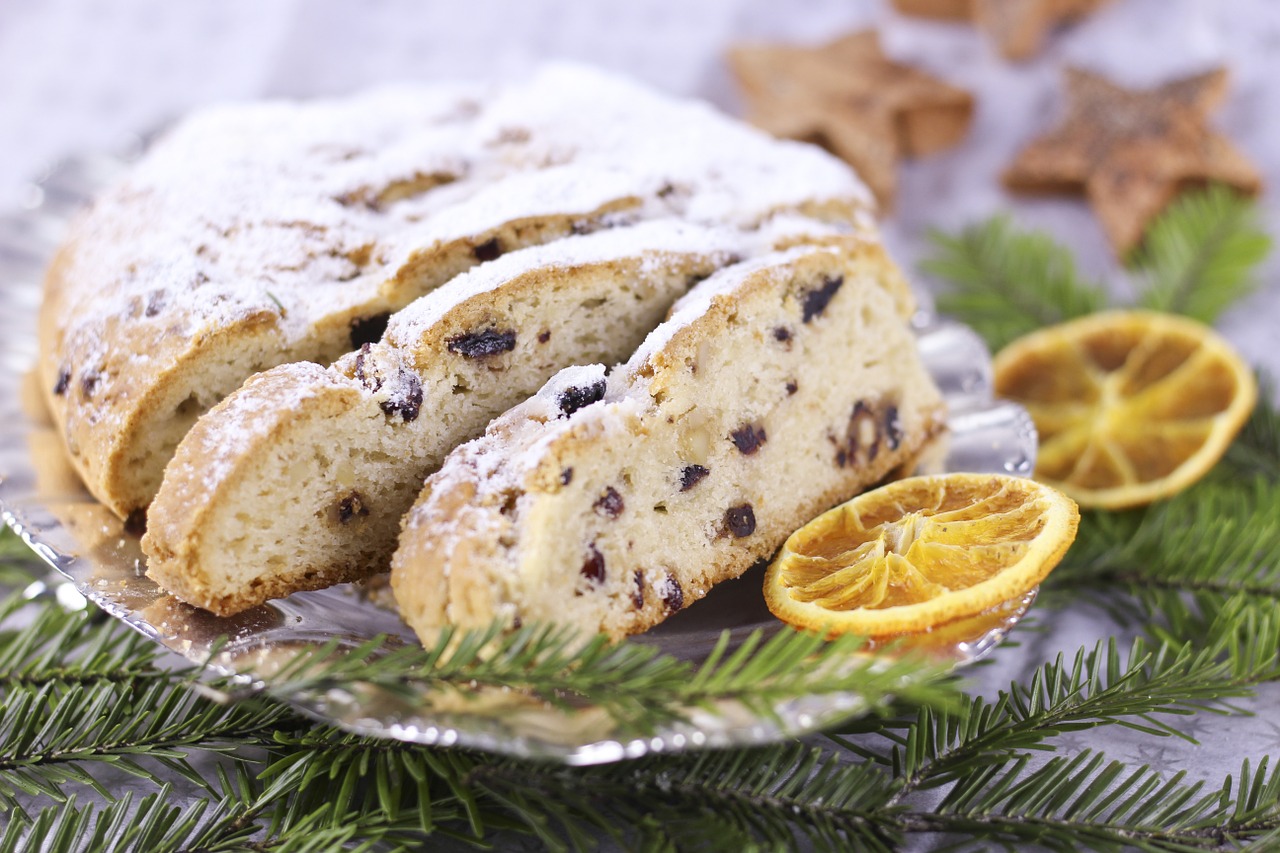Within the general history of fruitcake, of course, we must investigate the repulsion behind this unusual, and yet festive, food item.
Perhaps you still have one from over the holidays that you’re using as a doorstop.
Fruitcake has been called “easily the most hated cake in the existence of baking.” But where did it come from? And why the bad reputation?
The Romans are credited with creating the first fruitcakes. Much like how the first Philly cheesesteak didn’t actually contain cheese, fruitcake got its start without fruit. The first fruitcake consisted of barley mash, raisins, pine nuts, and pomegranate seeds; fruit, honey, spices, and nuts came later.
The fruitcake was utilized by the Romans to feed their army – it was a lightweight, high protein food, that could sustain those who were away from home for long periods of time.
In the 15th century, dried fruits and nuts began making their way to England from the Mediterranean. It became common to bake the new delectables into cakes.
By the 18th century, Europeans were traditionally eating fruitcake around the winter solstice to celebrate the annual nut harvest. At this point, about 70% of fruitcakes were fruits and nuts.
A major part of the appeal of fruitcake was the preservation aspect, especially in a time when fresh fruit was difficult to obtain. Inexpensive sugar coming to Europe from the colonies made a significant contribution to what would come to be today’s fruitcake: the sugar helps to preserve the perishable parts of the fruitcake, in addition to bringing out the color and flavor. The fruits can further be sweetened by making them candied.
Soaking the cake in alcohol, however, is the best way to ensure the dessert lasts a long, long time. (Although, I’m unclear on who actually came up with adding alcohol to the fruitcake. If you happen to know, please do comment.)
Rum or another type of liquor is “fed” to the fruitcake overtime through holes or with a cheesecloth. The alcohol enables the cake to last in the refrigerator for months.
In different cultures fruitcake has been celebrated at weddings and other special occasions, but as we all know, today it coincides primarily with the holiday season.
Some sources say the act that prompted fruitcake’s plunge into unpopularity was when Johnny Carson joked that “there really was only one fruitcake in the world, passed from family to family.” The food item continued to be ridiculed on The Today Show with the addition of the Fruitcake Lady.
Fruitcake has been called “tacky as hell,” with radioactive-looking candied fruit, among other not-so-endearing descriptions. The most common concrete complaints about the cake though, are that it is too sweet and too dry.
According to VillageVoice.com, “It turns out alcohol-bearing versions are inherently superior, since the booze neutralizes the coying sweetness.” Also, keeping the fruitcake wrapped in a liquor-soaked cheesecloth can help preserve the moistness.
Lesson learned: when it comes to fruitcake, bring on the alcohol.
Speaking of which, there are light fruitcakes and dark fruitcakes, and light fruitcakes can be made with or without liquor. Dark fruitcakes are made with molasses and dark liquors.
Fun fruitcake facts:
- In 18th century Europe fruitcake was outlawed for being too “sinfully rich.”
- Then, the law was repealed because fruitcake was just too important to tea time.
- The phrase “nutty as a fruitcake” came about in 1935.
- It was a custom in England for unmarried wedding guests to place a slice of the cake under their pillow to allow them to dream of their future spouse.
- According to Joy of Cooking authors, fruitcake, when properly prepared, can last as long as 25 years.
